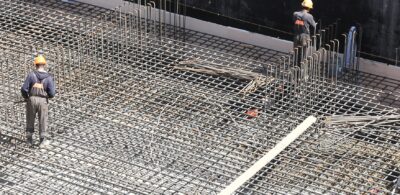WA Parliament passes the Building and Construction Industry (Security of Payment) Bill 2021
23 June 2021
On 22 June 2021, the Western Australian Parliament passed the Building and Construction (Security of Payment) Bill 2021 (WA) (Bill). Once the Bill receives Royal Assent and becomes an operative Act, it will implement sweeping changes to security of payment laws, bringing Western Australia more in line with most other Australian jurisdictions. Most notably, the Construction Contracts Act 2004 (WA) (CCA) will no longer apply to new construction contracts.
History, commencement, and transition
The Bill aims to provide better payment protections to contractors working in Western Australia’s construction industry, with a view to ensuring contractors get paid on time, every time. It also implements a number of recommendations from Adjunct Associate Professor John Fiocco’s report to the Government on security of payment reform in Western Australia.
A draft exposure bill was released in June 2020. A revised version of that bill was passed by the Legislative Assembly on 10 November 2020 but lapsed following prorogation of Parliament prior to the State election.
The reforms have now come sharply back into focus with the recent collapse of Pindan triggering calls for the government to take urgent action to protect subcontractors.
Having been passed by Parliament, the 2021 Bill is now awaiting Royal Assent. Following Royal Assent, it will become an Act. The operative provisions of the Act will commence on dates to be proclaimed by the Western Australian Government.[1] Different parts of the Act may commence at different times.
Key changes
The Bill is substantially the same as the bill that was considered by Parliament in 2020. We summarise the key areas of reform below.
Progress payments and payment schedules
Parties that carry out or undertake to carry out construction work, or to supply related goods and services, will have a statutory right to receive progress payments and to make a payment claim every month (or more often if provided for in the relevant contract). This is consistent with the position in other states.
The due dates for payment of progress payments will vary depending on the parties involved:
- principal to head contractor: due 20 business days after a payment claim is made;
- principal to non-head contractor: due 25 business days after a payment claim is made; and
- contractor to subcontractor: due 25 business days after a payment claim is made.
For home building work, payment is due on the date provided for in the contract or, if silent, 10 business days after a payment claim is made (noting that the Act will not apply to residential construction contracts for less than $500,000).
If the construction contract provides for a shorter payment period in any of the above scenarios, that period will apply.
A party must respond to a payment claim within 15 business days after the payment claim is made, unless an earlier time is provided for by the contract. The payment schedule must include reasons for not paying a claimed amount.
Reforming the payment dispute adjudication process
The adjudication process in this Bill is more consistent with those in most other Australian jurisdictions. The provisions are broadly similar to that of the CCA, with some key differences, including:
- introducing a requirement to provide notice of intention to apply for an adjudication where a response to a payment claim is not provided;
- shortening the time frame to bring an adjudication application to 20 business days following the payment claim and response procedure (including provision of any notice of intention to apply for an adjudication); and
- providing a new review process.
Consistently with the CCA position:
- respondents will have 10 business days to respond to an application; and
- the adjudicator will have 10 business days to make their determination, unless a longer period is agreed by the parties (up to a maximum of 30 business days).
Regulating certain contract terms
The Bill introduces ‘unfair time bar’ provisions, providing an arbitrator, adjudicator, court or expert appointed by the parties with the power to declare void any notice-based time bar provision that it deems to be unfair.
‘Pay when paid’ provisions will continue to be prohibited and have been expanded to include specific provisions that are contingent or dependent on the operation of another contract.
Creating deemed trusts for retention money
This scheme aims to provide security for builders, contractors, subcontractors and suppliers if their immediate contractual counterpart becomes insolvent. Retention money trust accounts will be required for all construction contracts that exceed the prescribed retention money threshold. This threshold will be prescribed by the regulations which have yet to be drafted, but the exposure draft indicated it would be $20,000.
Notably, the Bill does not introduce the broader cascading statutory deemed trust regime recommended by John Fiocco. The broader regime would apply so that, whenever a party receives payment under a construction contract on account of work performed by another party, the payment is deemed to be held in trust for the benefit of the party who performed the work. This is intended to safeguard money owed to subcontractors in the case of an insolvency by the head contractor or the principal.
Enhancing the powers of the Building Services Board
Through amending the Building Services (Registration) Act 2011 (WA) and the Building Services (Complaint Resolution and Administration) Act 2011, the Bill provides the Building Services Board with enhanced powers to manage the commercial conduct and behaviour of registered building services providers.
Application of the Act
The Bill contemplates a broader application than the CCA by narrowing the current ‘mining exception’. When it is operative, the Act will not apply to:
- building contracts with homeowners worth less than $500,000 (noted above);
- contracts between employers and employees for construction work or related goods and services;
- contracts requiring construction work to be carried out as a condition of a loan agreement with a financial institution;
- contracts to the extent it forms part of a loan, guarantee or insurance agreement with a financial institution requiring the lending or repayment of money;
- contracts where the consideration payable for construction works is not monetary consideration;
- contracts for drilling for or extracting minerals, oil or natural gas;
- contracts for constructing a shaft, pit or quarry, or drilling, for the purposes of discovering or extracting any mineral or other substance;
- contracts to build watercraft; and
- contracts involving works where a party fails to hold a registration in contravention of the Building Services (Registration) Act 2011.
Key takeaways
Parties should appropriately amend their precedent contracts so they are ready once the Act is operative, including to ensure payment provisions align with the new arrangements. They should also implement updated policies and systems within their operations to ensure compliance with the new legislation.
[1] Limited provisions regarding the authorisation of the nominating authorities of adjudicators will commence the day after Royal Assent.
Authors

Senior Associate
Lawyer
Tags
This publication is introductory in nature. Its content is current at the date of publication. It does not constitute legal advice and should not be relied upon as such. You should always obtain legal advice based on your specific circumstances before taking any action relating to matters covered by this publication. Some information may have been obtained from external sources, and we cannot guarantee the accuracy or currency of any such information.


